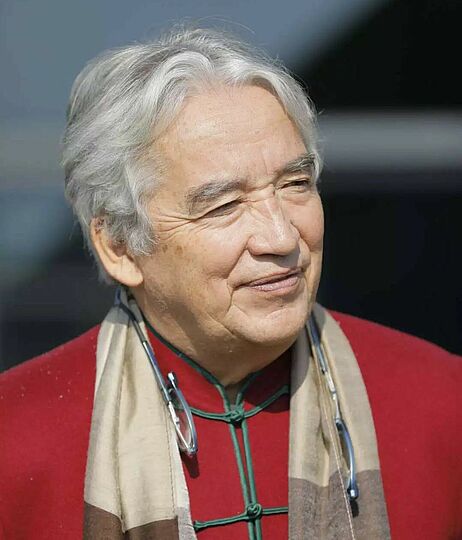Finding Happiness in Education

Dr Ha Vinh Tho was Program Director of the Gross National Happiness (GNH) Center in Bhutan from 2012 to 2018. He is the co-founder of the Eurasia Foundation and Association for Curative Pedagogy in Vietnam, a humanitarian NGO that for the past 20 years has been developing educational programmes for children and youths living with disabilities, as well as ecological projects. In the interview, he describes his understanding of happiness and relates it to the SDGs and modern education.
You were head of the Gross National Happiness Center in Bhutan for several years. What is your understanding of happiness, and what are the prerequisites for a happy life?

There are basically two dimensions of happiness. The first dimension is more a superficial one. It has to do with pleasure and temporary pleasant experiences. Then there is a second, deeper dimension that has to do with having the feeling that one is living a meaningful life. In addition, the qualities of our interpersonal relationships are of great importance. Ultimately, it is a question of living in harmony with our environment and with the planet. That has become particularly important nowadays. If these three levels are more or less in harmony, then the prerequisites for a happy life are fulfilled.
What contribution can education make in order that all people can be happy in future?
Neuroscientific research shows that there are internal prerequisites for happiness. These prerequisites – for example, mindfulness, gratitude, the ability to work in a team, and empathy – can be learned. A modern education should therefore systematically train such “happiness skills”.
In your opinion, is there a connection between happiness and the sustainable development goals (SDGs)? And, if so, what is it?
Development must have a goal; it is only a means towards an end. This also applies to the SDGs. Thus, the question is what we, as humankind, want the goal of our development to be. I am convinced that the goal should be happiness for all human beings and well-being for all life forms – in other words also animals, plants, and the Earth. The aim of the SDGs is to contribute to creating framework conditions that enable the common good to be sustainably enhanced and guaranteed.
I am convinced that the goal should be happiness for all human beings
Dr Ha Vinh Tho
How, in your opinion, can the development of these framework conditions be guaranteed?
Although happiness is experienced in a very personal way, it depends also on objective prerequisites, and it is a social responsibility to fulfill these prerequisites as well as possible. On the other hand, it is also necessary to develop the right values, attitudes, and skills in the education system from childhood onwards so that the society of tomorrow can become more just, more sustainable, and thus also happier.
Dr Ha Vinh Tho is one of two keynote speakers who will talk about STEM education for sustainable development on Dec 5/6 at the "International Dialogue on STEM Education" (IDoS).

